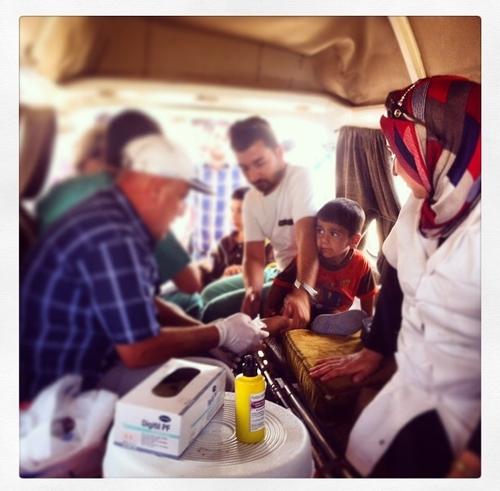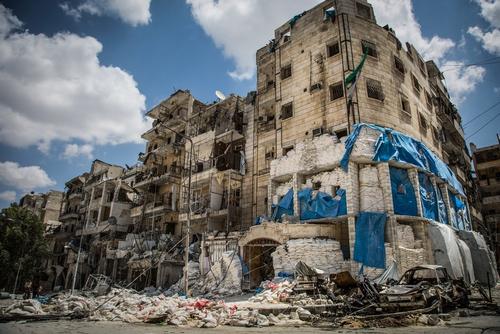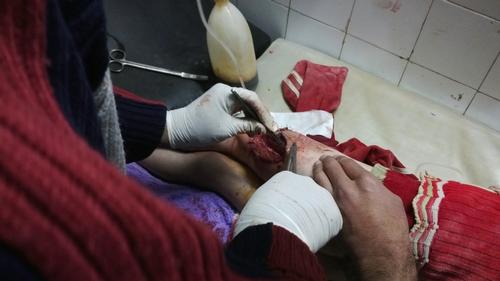Doctor E. is a surgeon in one of the field hospitals in North Homs, an area that has been under a suffocating siege for more than one year.
Running from death to siege
When I say that our village is relatively safe it means that we expect regular, but not daily, airstrikes. Last week a school run by volunteers nearby was destroyed when it was hit by shelling. The impact shattered the glass windows in our hospital, and we immediately transferred patients to the basement. We are caught between two active frontlines and when other field hospitals are stretched, they send us the wounded. They arrive in normal cars, because no one has enough fuel to run ambulances.
Being under siege is like an endless night – a night that we’ve learned can get darker and darker. We have run out of basic food and medicine supplies so many times, we try very hard to keep a little extra. We are getting more and more organized, as much as possible we try to plan consumption rates of key medical items. There is an organization that covers some limited salaries and running costs like fuels and maintenance. Only MSF provides us with medicine, and whenever possible we try to stockpile. But within the North Homs area, there are zones that are under even more intense siege – like Al Houleh – and there it is impossible to stock anything. The situation is not as improvised as it used to be, four years have passed. This is going to last a while.
Our village is overwhelmed with thousands of displaced people from all over Homs. They ran away from death, but are now under siege. Our small field hospital was set up to treat the wounded, but with time and because of the siege, we now see many children, pregnant mothers and elderly patients. It’s too dangerous to cross the checkpoints to government hospitals, and many of our patients would rather take the chance of the limited treatment available in North Homs than risk the journey. There are lots of gaps - maternal healthcare is very limited, and there are only two orthopedic and four general surgeons for around 350,000 people. I’m a general surgeon myself and we rotate among the few field hospitals in North Homs, wherever we are needed, working long hours for very little pay.
I would give the volunteers diplomas if I could
Many tireless volunteers support the running of the field hospitals. They don’t have degrees, but they have war experience. I would give them all diplomas if I could. It’s impossible for us to get medicine in any official way. Even basic supplies are scarce, so we started making our own handmade Gauze, we make very little, but it’s better than nothing. Blood bags and anesthetics are virtually impossible to procure; people risk their lives to carry small amounts. Vaccinations used to be allowed in, but for the last four months even this wasn’t possible.
Flour and yeast are forbidden; the checkpoints allow 8 loaves of bread at a time. We use whatever grains are available - it no longer tastes like bread but we eat it. Whatever is available on the market is so expensive, up to four or five times what it used to cost before the war. Even those who had a little money before don’t have much left now. Electricity and clean water are considered luxuries.
All of us here are living under great pressure. I haven’t left this area in more than three years - you can’t imagine how that feels. I have three children, but I don’t see them enough. I’m like a robot, working day and night, and when I can I go home to my family.
The violence has forced so many people to lead entire lives underground; schools, hospitals, homes are all below ground level. Our home is on the second floor and only last Thursday the building was hit by shelling. Fear is dictating our lives, but while I’m alive I choose to live above ground.





